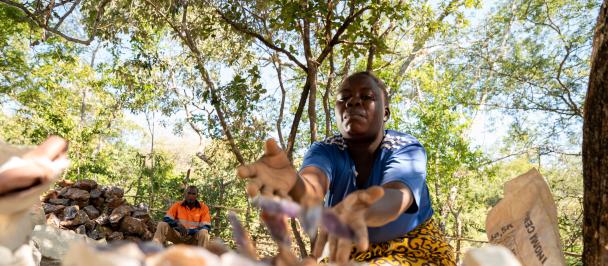Embarking on a Sensemaking Mission into Zambia's Southern Borderlands in light of the AfCFTA with UNDP Zambia's Accelerator Labs
Catalysing Beneficial Linkages for Small-Scale Cross-Border Traders in Land-Linked Zambia
August 11, 2023
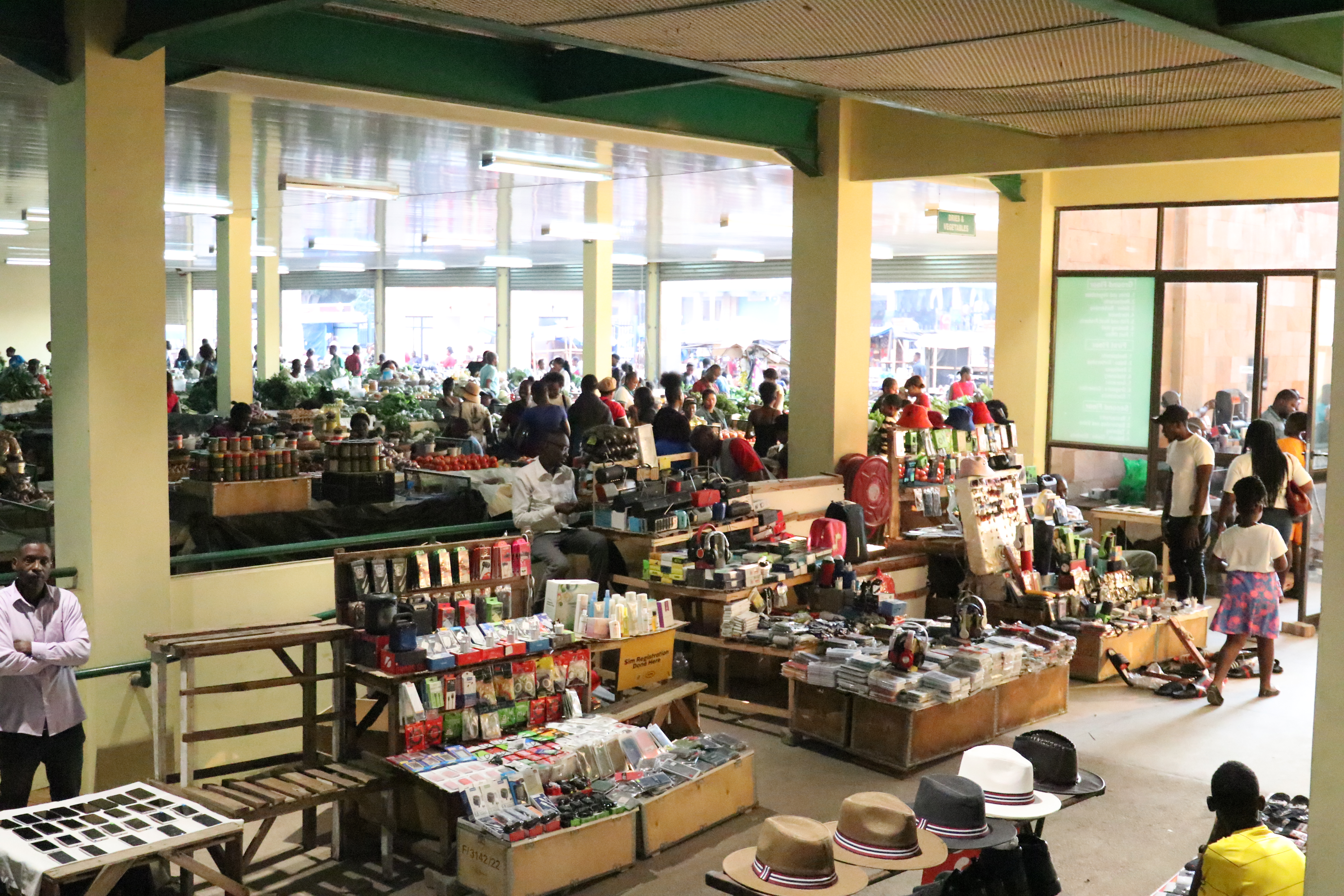
Livingstone City Market
Zambia is often described as land-linked, boasting borders with 8 countries, namely, the Democratic Republic of Congo, Tanzania, Malawi, Mozambique, Zimbabwe, Angola, Botswana, and Namibia. Many Small-Scale Cross Border Traders (SSCBT), living and working in these borderline communities, depend on their movement across the borders to buy and sell the goods that sustain their livelihoods. From groceries to building supplies, these SSCBTs are also a lifeline to many living on the borderlands, providing much needed supplies and materials to communities on either side of Zambia’s borders.
However, the Covid-19 pandemic and the subsequent travel restrictions, drastically impacted the way these traders were able to access cross border markets to purchase and sell their wares. To date, many SSCBTs are still recovering from the reduced cash flow that the Covid-19 restrictions caused. Coupled with the prevalence of both tax and non-tax barriers, traders are facing significant hurdles to remaining profitable and financially stable.
Moreover, Small-Scale Cross Border Trade is dominated by women and the youth, who often depend on the income earned through trade to provide basic services for themselves and their families, and to gain and sustain their financial independence.
“Widening access to finance for informal cross border traders into vibrant micro-entrepreneurial activities has a significant potential not only to help reduce poverty but contribute to food security and drive a stronger recovery from COVID-19”– James Wakiaga, UNDP Zambia Resident Representative
On a sensemaking mission across the breadth of Zambia’s borderline communities, from Katima Mulilo-Sesheke (between Zambia and Namibia),to the Kazungula One Stop Border (between Zambia and Botswana), the Livingstone borderlands (between Zambia and Zimbabwe), and ending at Kasumbalesa (between Zambia and Congo DRC) the UNDP Zambia Accelerator Labs (AccLab) sought out to determine the issues that Small-Scale Cross Border Traders (SSCBTs) experience while conducting their business across Zambia’s borders.
As part of the mission, the team met with traders through the local Cross-Border Trading Associations (CBTA), and with the Government agencies that facilitate trade in the borderlands such as the Zambia Revenue Authority customs officials and Zambia Immigration Services officials in Livingstone, Kazungula, Sesheke and Kasumbalesa, to gain an understanding of the challenges experienced and to determine possible opportunities, community sourced solutions and intervention entry points to support inclusive trade for youth and women SSCBTs.
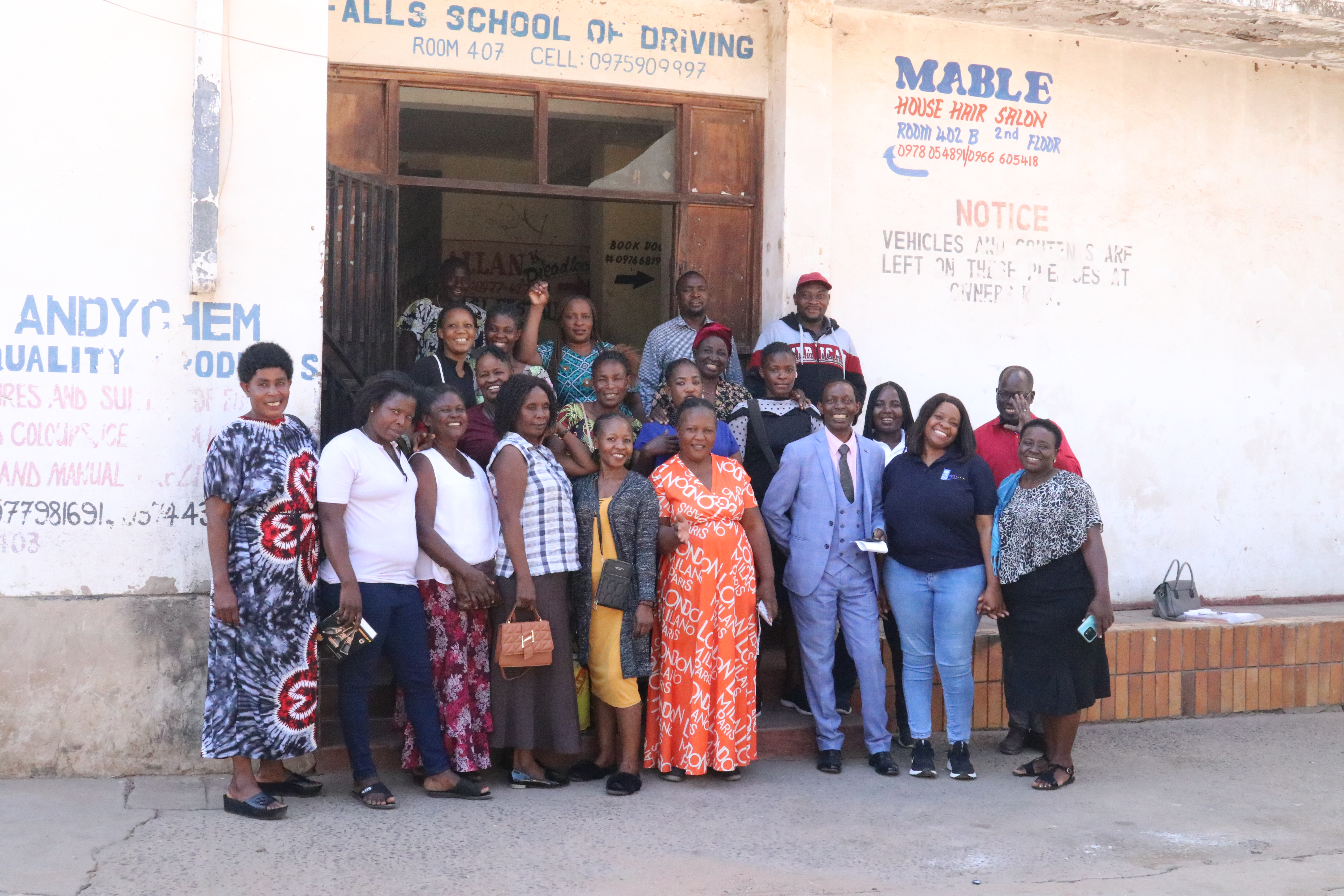
The members of the Livingstone Cross-Border Traders Association after their consultative session with AccLab
Considering the operationalisation of the Regional Trade Agreements (RTAs) and as Zambia prepares for the implementation of the African Continental Free-Trade Agreement (AfCFTA), AccLab Zambia partnered with AccLab Namibia to identify interventions that capitalise on the opportunities promoting regional trade that the AfCFTA presents to SSCBTs and MSMEs in the two countries.
Developed by the African Trade Policy Centre of the Economic Commission for Africa (ECA), in close collaboration with the African Union Commission (AUC), the AfCFTA is set to increase income on the continent by U$D 450 billion (Ngom, 2023), enabling Africa to reach 29 trillion mark by 2050 (UNECA). The AfCFTA is also expected to boost the continent’s Gross Domestic Product (GDP) by U$D 2.5 Trillion for its 55 member states – Zambia, Botswana, Namibia and the Democratic Republic of Congo included. This will be possible through facilitating increased and economically stable, sustainable trade between countries by shifting the trade focus from extractive resources to products with added value, lowering trade barriers and reducing restrictions between nations on the continent to stimulate exports between regional markets in order to counter the continent’s struggle of penetrating foreign markets. Ultimately, the AfCFTA is set to stimulate job creation and provide opportunities for Africa’s fast-growing youth population, incorporating inclusions to avoid and reduce the impact of disempowering and marginalising systems/policies.
This presents Zambia with a huge opportunity to increase its export earnings, by tapping into the larger African market of 54 countries with a purchasing power of about $ 3.4 trillion. The country seeks to increase export earnings and market share on the continent, by leveraging the opportunities under AfCFTA based on comparative and competitive advantages derived from the country’s performance in regional trade within COMESA and SADC, especially among micro-, small, and medium-sized enterprises (MSMEs) and cooperatives.
As Zambia eagerly awaits the implementation of the AfCFTA, the AccLab team is working with SSCBTs, MSMEs and Innovators to determine their readiness to harness opportunities under the agreement by assessing the implementation of other key RTAs such as COMESA, SADC and the bilateral agreements between Zambia and its neighbouring countries.
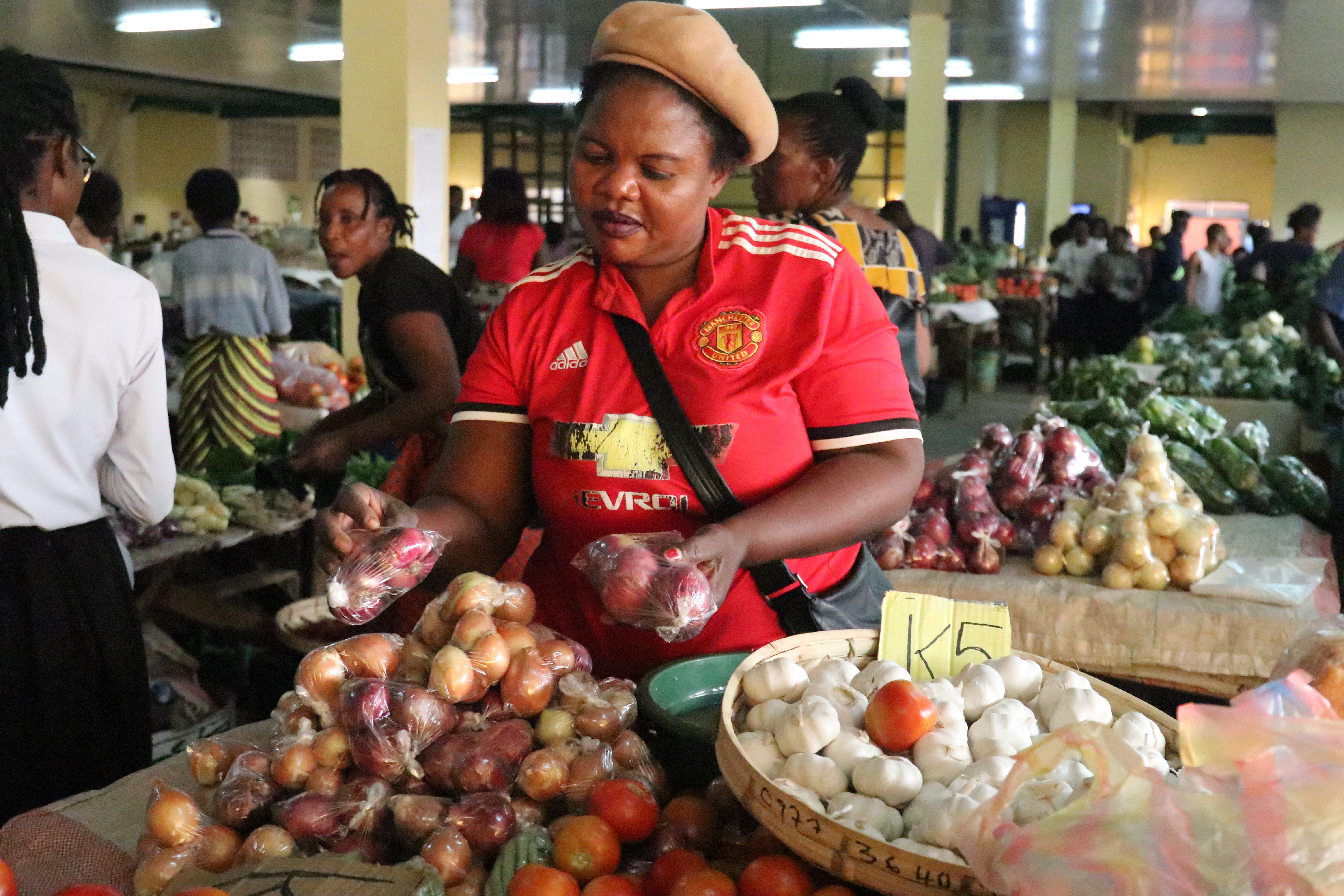
A member of the Livingstone Cross Border Traders Association at her stall in Livingstone City Market
For SSCBTs, the AfCFTA is expected to facilitate linkages for small-scale businesses to access larger markets within and outside of the continent, to grow their market stake and create a sustainable economy for SMEs. This will be done through reducing tariffs, simplifying clearing procedures at borders, increasing protections from theft, goods confiscations, and sexual harassment – especially of women who make up about 70% of the SSCBT sector on the continent.
Using focus group discussions with the CBTAs and their members, structured surveys tours of the surrounding markets, and meetings with key government agencies like the Zambia Immigration Services and the Zambia Revenue Authority (ZRA), the team gained an understanding of the landscape that influences CBT in Zambia.
Through their investigations, the AccLab team discovered the following key findings that will assist the team in identifying ways in which the AfCFTA and other relevant RTAs can prove beneficial for stimulating effective trade with borderland communities:
Digital Platforms and Cross-Border Trade
We are living in the age of the Fourth Industrial Revolution – or as it is known colloquially, Industry 4.0. This era is categorised by innovation and frequent developments in technology and automations. As such, and on Zambia course towards development, we cannot afford for anyone to fall behind as the landscape of the world continues to transform into a hybridised physical-virtual world.
SSCBTs are aware of their need to adapt with the changing times and to become more connected with markets through technology. Over 97% of the 76 SSCBTs accessed during the sensemaking mission, reported having access to phones - 81% of which used smart-phones. Further, about 64% of the SSCBTs used digital platforms to source and market their goods, majority of which made use of popular messaging platforms such as WhatsApp and Facebook messenger.
The findings revealed an opportunity to the AccLab team, for the development solutions of that can be tested to understand whether capitalising on the availability of smart phones amongst the SSCBTs can ensure that CBTs are not left behind as the world of trade becomes more digital.
“In 2022, only 30% of women in Least Developed Countries used the internet. As a women dominated space, it is crucial that as the world becomes increasingly digital, small scale cross border traders in Zambia are empowered to embrace digital technology to deliver on the Sustainable Development goals, to enjoy the transformative benefits of achieving the goals outlined under SDG 5 and increase Zambia’s market competitiveness within and outside of the region”– adds the Resident Representative for UNDP Zambia, James Wakiaga.
Hidden Costs of doing business through Border Costs
Of the four border posts the team visited, the findings of the sensemaking mission revealed that the OSBC at the Kazungula border was significantly more efficient, causing individuals and Cross-Border Traders to spend less time at the border.
However, the traders reported that using the OSBC had also the cost of doing business considerably. Before the OSBC, the SSCBT paid 3 Zambian Kwacha (equivalent to 15 cents in the US’ currency) to use a pontoon to cross the borders, but since the commissioning of the OSBC, SSCBTs now pay 20 United States Dollars (equivalent to 380 Kwacha) to cross over the Kazungula border. In cases where a CBT is using a private vehicle these costs are almost tripled due to road permit costs. Additionally, both the immigration officers and SSCBTs reported a heavy reliance on informal agents, who add further costs to clearing goods and act as a bottleneck in the process. Moreover, SSCBT as still recovering from the latent economic effects of the Covid-19 pandemic which has considerably reduced their cash flow and access to capital.
Considering that most of the SSCBTs in the southern parts of Zambia purchase and sell goods in Botswana – with about 47% of the traders interviewed buying and selling goods across the Kazungula border, this dependence on agents and the increased cost of crossing the border, acts as a significant barrier to their continued trade.
Some traders also reported that the centralisation of visa and permit application services also made it difficult to quickly move across the Katima Mulilo – Sesheke border. Zambian traders travel from Sesheke and other neighbouring towns to the capital city, Lusaka (over 640 kilometres away) to submit visa applications at the Namibian Embassy – which compounds the costs of running their businesses.
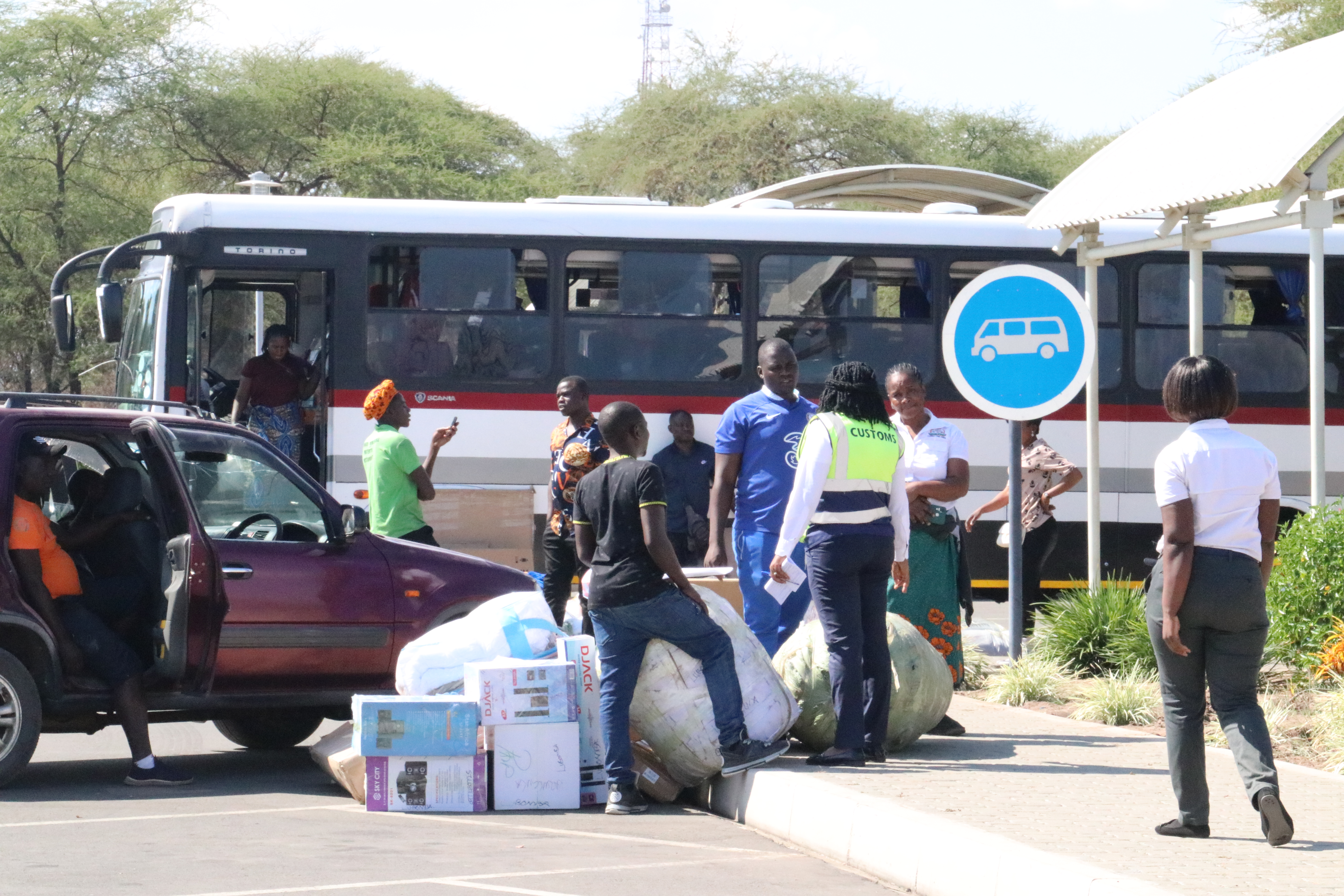
Inspection of goods at the Kazungula OSBP
Lack of Knowledge of and about Relevant Regional Trade Agreements
While most of SSCBTs assessed were familiar with at least one Regional Trade Agreement (RTA) – with over 73% of them reporting that they knew of an RTA, specifically, COMESA, only 2.4% of the traders had heard of the African Continental Free Trade Agreement (AfCFTA). Less than half of those who knew of an RTA had also accessed the opportunities and services they offered SMEs and those that had, only made use of the COMESA STR which offered lower duties and tax rebates.
A major concern shared by the traders was that the information was difficult and confusing to interpret. The lack of understandable information and adequate sensitisation efforts geared at improving SSCBTs understanding and ability to access the services of RTAs often causes misunderstandings between the traders and the immigration and tax officials, which has incited complaints of corruption and lengthened wait times at the border.
The AccLab Zambia team will be exploring several solutions alongside their Namibian counterparts, including the possibility of an information desk at the border to ensure that the SSCBTs get the right information, at the right time, in understandable manner.
Borderland Economy
The Zambia traders in all the border posts were concerned with issues of trade imbalances between Zambia and the other countries. For instance, the traders from Botswana, Namibia and the Democratic Republic of Congo are free to trade in Zambia and are issued with trade permits made especially for agricultural goods. However, while the Zambians SSCBTs buy goods for sell in Zambia across these borders, they cannot trade within these countries. This imbalance is reported to disadvantage the Zambian traders under the free trade agreement.
Altogether, the appeal from the traders was for government to look at these issues and help level the trade between the countries or restrict traders from other countries to protect the interest of the Zambian traders.
Next Steps
Following the Accelerator Labs’ programmatic approach, the team will now proceed with a collective intelligence workshop to map the key issues and co-design a pilot that could trigger solutions for the CBTs working in collaboration with the Cross-Border Traders Associations, AccLab Namibia, respective government departments, and other local partners, to identify grassroots solutions that could potentially accelerate development in the borderlands towards Agenda 2030.

 Locations
Locations







